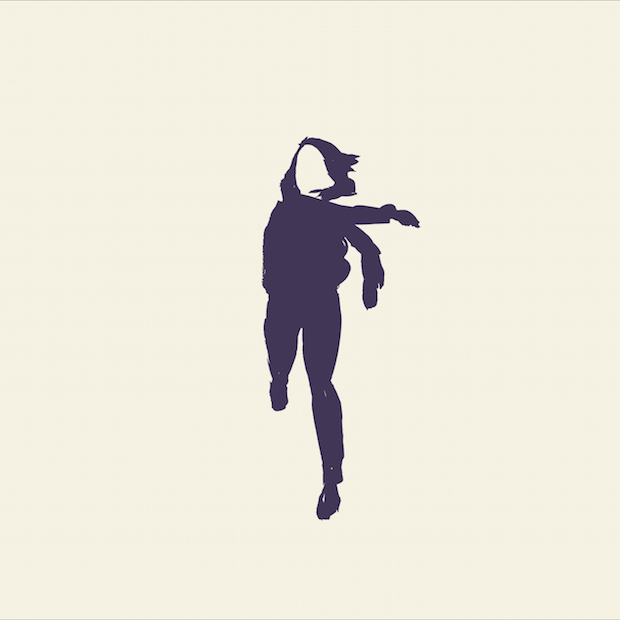Interviewed for the Creation Records fansite in 2001, Steve Queralt was asked where he thought it all went wrong for Ride, the Oxford shoegaze pioneers he once twanged the bass guitar for. “Releasing Carnival of Light,” was his honest appraisal. “After Going Blank Again, I felt we were at a fork in the road and that we took the wrong route.”
Despite singing about one, Ride are not in possession of an actual time machine, but they have done the next best thing on their triumphant comeback album, Weather Diaries, by returning to that fork in the road – albeit with another 25 years of life experience under their belts. This time they have taken the right route, aided and abetted by the producer Erol Alkan, in following the fork of experimentation, progression and making bold, inventive, modern guitar-pop music, instead of the retro Mojo guitar rock that typified 1994’s Carnival of Light, and Tarantula, the band’s derided swansong.
Weather Diaries feels like the rightful heir to Going Blank Again, which, until now, was the band’s creative highpoint. Opener ‘Lannoy Point’ is a case in, er, point. A chiming, melodic guitar line that guitarist Andy Bell says owes a debt to DIIV, but sounds more like a nod to The Cure to these ears, is joined by an undulating synth line courtesy of an old Korg Poly-61 Queralt picked up in the States. There’s a real sense of movement in the propulsive rhythms from drummer Loz Colbert that echoes ‘Leave Them All Behind’ (epochal opening track on GBA), while Queralt hammers out a bassline like a man whose life depends on it. The sweet harmonies between Bell and fellow frontman/guitarist Mark Gardener are better than ever, as defining to the Ride aesthetic as Colbert and Queralt’s restless rhythm section.
‘Charm Assault’ is a sassy blast of Who-esque guitar-pop with a memorable hook, while the urgent chorus of the shimmering ‘All I Want’ has its genesis in the band’s early eps (‘Furthest Sense’ from ‘Play EP’ in particular), underpinned by Colbert’s galloping drums and Queralt’s juggernaut of a bassline.
Lyrically, this opening salvo has a political undercurrent. In the 1990s Ride were criticised for having nothing to say, but these songs comment on the parlous state of the planet (‘Lannoy Point’), Boris Johnson (‘Charm Assault’) and Theresa May’s attempts to turn Britain into a fascist state (‘All I Want’). “There is an ill-wind blowing,” Gardener sings on the latter. “It’s not a pretty picture, this is 1932.”
The reason for the topicality of the lyrics is connected to the swift genesis of album. The process of recording Weather Diaries wasn’t protracted or angst ridden. They went into the studio with Alkan and smashed it out in just over a fortnight. It sounds fresh and spontaneous, but also relevant. This isn’t “RIDE do politics”, more the sound of a band completely in the moment, as Bell and Gardener were compelled to write about the turmoil of the country, something that they would be the first to admit is not their usual subject matter. Even the album artwork is a reimagining of the poster from the 1968 Paris riots.
The woozy ‘Home is a Feeling’ is the only song to deliver the archetypal shoegaze sound, a blissful slowburner with Beach House vibes and slowcore drum and bass backing from Loveless-era My Bloody Valentine.
The title track is a stately Bell jam, initially the most straightforward classic rock song on the album, under the influence of Floyd, Bowie and Lennon. "You never know what someone’s thinking, until they’re just about to go," Bell sings, regretfully, perhaps referring to the acrimonious break-up of the band in 1996. An exquisite guitar solo is a bridge to the closing musical maelstrom, which sounds like ‘Dreams Burn Down’ being obliterated in the afterburners of a space shuttle take-off.
‘Rocket Silver Symphony’ is delightfully bonkers, a lost track from a Pete Townsend rock opera sent into orbit, with krauty rhythms, drones and a smattering of electronics. For ‘Lateral Alice’, Bells dons the MC5 shades and lets loose a swaggering riff thrillingly ripped from Spacemen 3’s ‘Revolution’, while Colbert nonchalantly knocks out a groovy backbeat and Bell imagines taking a stroll with David Foster Wallace and surfing with Robert Anton Wilson.
Alan McGee got Ride into The Byrds and his introduction pays off in spades with ‘Cali’, which is an absolute pearler – a beefier, 21st-century incarnation of the 1960s West Coast janglers, with delicious sun-kissed harmonies. The dissonant ambience of ‘Integration Tape’ might sound inconsequential, but for Bell it is key to the album, the band’s attempt at William Basinski’s tape decay, an aural motif that echoes throughout Alkan’s production on the rest of the album.
The final two tracks – the trippy psychedelia of ‘Impermanence’ and the impassioned ‘White Sands’, with its waltz-like tempo – belong to Gardener. There’s a real depth and richness to his voice and a complexity to the arrangements that reveals a new maturity in the band’s songwriting.
The great frustration for Ride fans was the knowledge that it ended too soon – the missed opportunity and wasted potential of not building on what the band had achieved with Going Blank Again. Anyone who wanted Weather Diaries to be Nowhere Mk2 will be disappointed – the title track aside, pedals are used for texture and atmosphere rather than overt noise-making – but these are probably the same people who were upset that Going Blank Again wasn’t just another Nowhere. However, they have always missed the point of Ride. While Nowhere was an album in thrall to their idols turned peers – MBV, House of Love, etc – Going Blank Again was the sound of Ride discovering the sort of band they wanted to be, turning on the afterburners and leaving their contemporaries behind. Weather Diaries picks up the story from there. The forecast is bright – expect sunshine and the odd hurricane.


